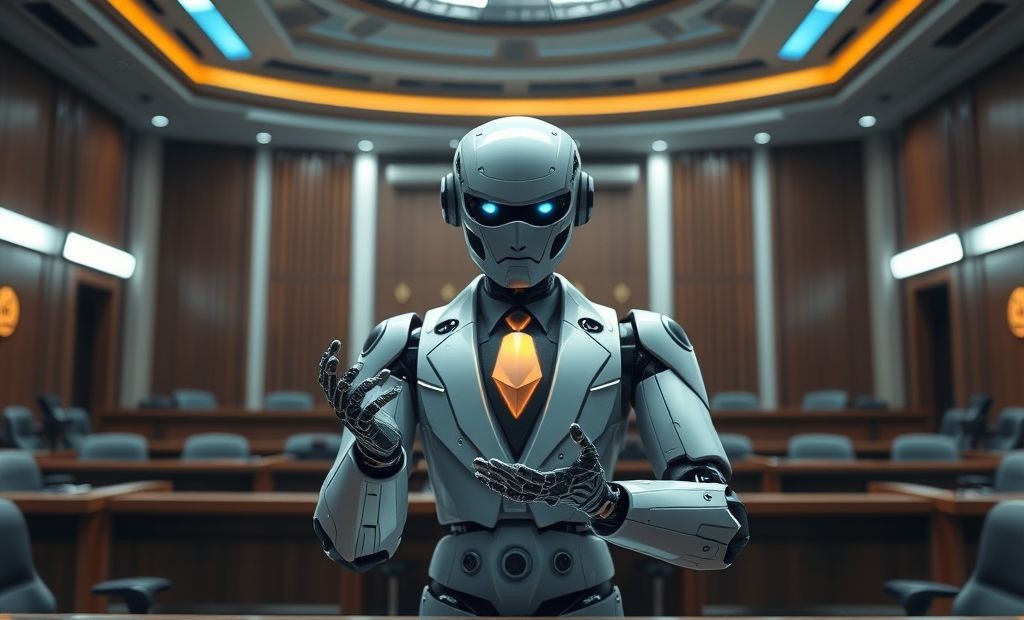Anthropic Fair‑Use Victory Boosts Generative AI

AI Training Victory: Anthropic Prevails in Copyright Case In a closely watched legal battle, a federal judge has sided with Anthropic, an artificial intelligence company,...
⏱️ Estimated reading time: 3 min
Latest News
AI Training Victory: Anthropic Prevails in Copyright Case
In a closely watched legal battle, a federal judge has sided with Anthropic, an artificial intelligence company, in a lawsuit concerning the use of copyrighted books to train its AI models. The core of the dispute revolved around whether using copyrighted material without explicit permission for AI training constitutes copyright infringement. This ruling sets a significant precedent for the burgeoning field of AI and its relationship with intellectual property.
The Lawsuit’s Focus: Copyright and AI Training Data
The plaintiffs, a group of authors, argued that Anthropic‘s AI models were trained using their copyrighted works without their consent. They claimed this violated copyright law and sought damages and an injunction to prevent further use of their material. The authors highlighted the potential for AI to replicate their writing styles and content, thereby impacting their market and creative control.
The Court’s Decision
The judge ruled in favor of Anthropic, asserting that the AI training fell under the umbrella of fair use. The court considered several factors, including the transformative nature of AI training, the purpose and character of the use, the nature of the copyrighted work, and the effect of the use upon the potential market for or value of the copyrighted work. The decision emphasized that AI training involves a transformative process where the copyrighted material is used to create something new and different, namely an AI model capable of generating its own content.
Implications for AI Development
⚖️ Anthropic Wins Fair‑Use Ruling in AI Training Lawsuit
A U.S. judge ruled that Anthropic’s use of copyrighted books to train its Claude AI model qualifies as fair use, provided the content isn’t stored in a central pirated library. Moreover, the court said the training was “exceedingly transformative.” However, Anthropic still faces a December trial over pirated book storage. facebook.com

🔍 Implications for AI Developers
Legal uncertain terrain
Still, fair use in AI depends on jurisdiction, data sourcing, and how content is used. Further legal challenges are likely. Meanwhile, developers should review their data practices carefully. pymnts.com
Fair‐use pathway
The case sets a landmark precedent for AI firms like OpenAI, Microsoft, and Meta. Therefore, legitimate training on purchased and digitized works may now be legally safer. en.wikipedia.org
Conditions apply
The ruling hinges on two key rules: content must be transformative, and firms must avoid centralized storage of pirated materials. Additionally, illegally downloaded text still triggers liability.
Future Legal Challenges
While this ruling is a win for Anthropic, it’s unlikely to be the final word on the matter. Similar lawsuits are pending against other AI companies, and the legal landscape surrounding AI and copyright is constantly evolving. Future cases may focus on different aspects of AI training or involve different types of copyrighted material. It remains essential for AI developers to stay informed about the latest legal developments and to implement practices that respect copyright law. Understanding fair use and the nuances of copyright in the digital age is crucial. More information on copyright law can be found at the U.S. Copyright Office.
AI Ethics and Responsible Development
Beyond the legal considerations, the case also raises important ethical questions about AI development. Even if using copyrighted material for AI training is legal, companies should consider the ethical implications and strive to respect the rights of creators. This could involve seeking permission from copyright holders, implementing measures to prevent AI models from replicating copyrighted content, or compensating creators for the use of their work. Exploring resources on AI ethics from organizations like the AI Ethics Initiative can help developers navigate these complexities.
Related Posts
Bluesky Enhances Moderation for Transparency, Better Tracking
Bluesky Updates Moderation Policies for Enhanced Transparency Bluesky, the decentralized social network aiming to compete...
December 11, 2025

Google Maps: Gemini Tips, EV Charger Predictions & More!
Google Maps Gets Smarter: Gemini Tips & EV Updates Google Maps is enhancing user experience...
December 9, 2025

Adobe Acquires Semrush in $1.9B SEO Power Play
Adobe to Acquire Semrush for $1.9 Billion Adobe announced its agreement to acquire the search...
December 1, 2025











Leave a Reply